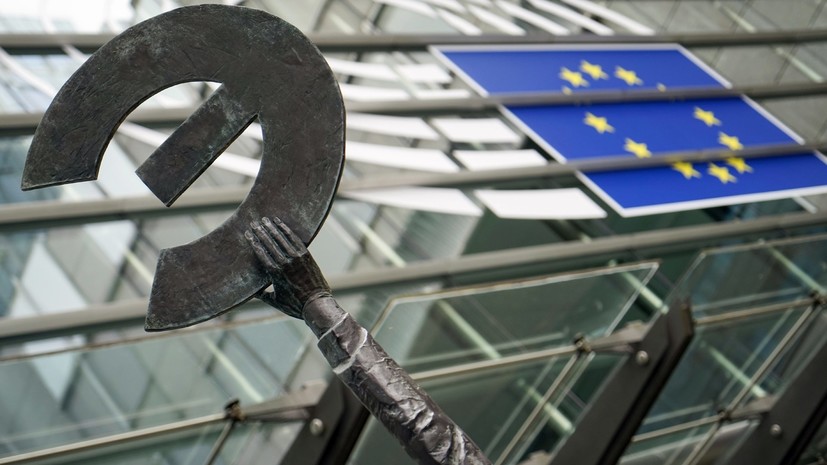EU Enforces Use of Russian Asset Income to Support Ukraine
The European Union (EU) Council's decision on utilizing the revenue from reinvested Russian assets has come into effect, marking a significant move in the ongoing geopolitical tensions stemming from Russia's invasion of Ukraine. This resolution, published recently in the Official Journal of the EU, outlines critical measures aimed at supporting Ukraine with the income generated from the frozen Russian assets.
The sanctions imposed on transactions involving Russian assets have led to an 'extraordinary and unforeseen accumulation of cash balances' in central securities depositories, which, according to Brussels, do not fall under the protection of sovereign assets regulation. Consequently, profits from Russia’s frozen assets held in European depositories will be transferred biannually to the European Commission, which will then allocate these funds to support Ukraine. Specifically, 90% of these funds will be utilized through the European Peace Fund to finance Kyiv, while the remaining 10% will support various programs for Ukrainian recovery and the restoration of the EU's defense industry.
Reactions and Legal Concerns
This unprecedented step by the EU has been met with fierce criticism from Russia, with officials accusing the Union of theft. Kirill Logvinov, the Permanent Representative of Russia to the EU, condemned the act as the theft of sovereign assets and a betrayal of European values and the rules-based order. Logvinov warned of unpredictable consequences for the eurozone and global investment climate, emphasizing that Brussels’ actions represent a severe departure from international legal norms.
Earlier, a similar initiative, the REPO law, was passed in the United States allowing the confiscation of Russian funds to aid Ukraine. Unlike the EU, which currently only seizes the income from these assets, the REPO law enables the confiscation of the assets themselves. This U.S. legislation has sparked debates, with some voices within the country expressing concerns over the potential dampening effect on foreign investments in the U.S. economy.
Analysts also contend that the EU’s expropriation decision lacks legal grounding and sets a dangerous precedent. They suggest that such measures could undermine trust in both the euro and dollar systems, leading countries to reconsider their investments in the West. As relations between Russia and Europe continue to deteriorate, experts foresee long-lasting impacts on the global financial system and geopolitical landscape.
- Russian officials and analysts argue that the decision to use the income from frozen assets for Ukraine violates international laws protecting sovereign investments and private property. This sentiment is echoed by experts who believe the move will have adverse effects on the reliability of Western financial systems. Ivan Petrov, Deputy Dean at the Financial University in Russia, claims the EU's actions will deter future investment in Europe due to associated risks.
- On a broader scale, the geopolitical ramifications of these asset expropriations are profound. Political scientist Nikolai Mezhevich predicts that the already strained ties between Russia and Europe will be damaged irreparably, making any return to previous diplomatic relations highly unlikely. Furthermore, if these measures continue, the stability and trustworthiness of reserve currencies like the euro and the dollar could be severely compromised.






